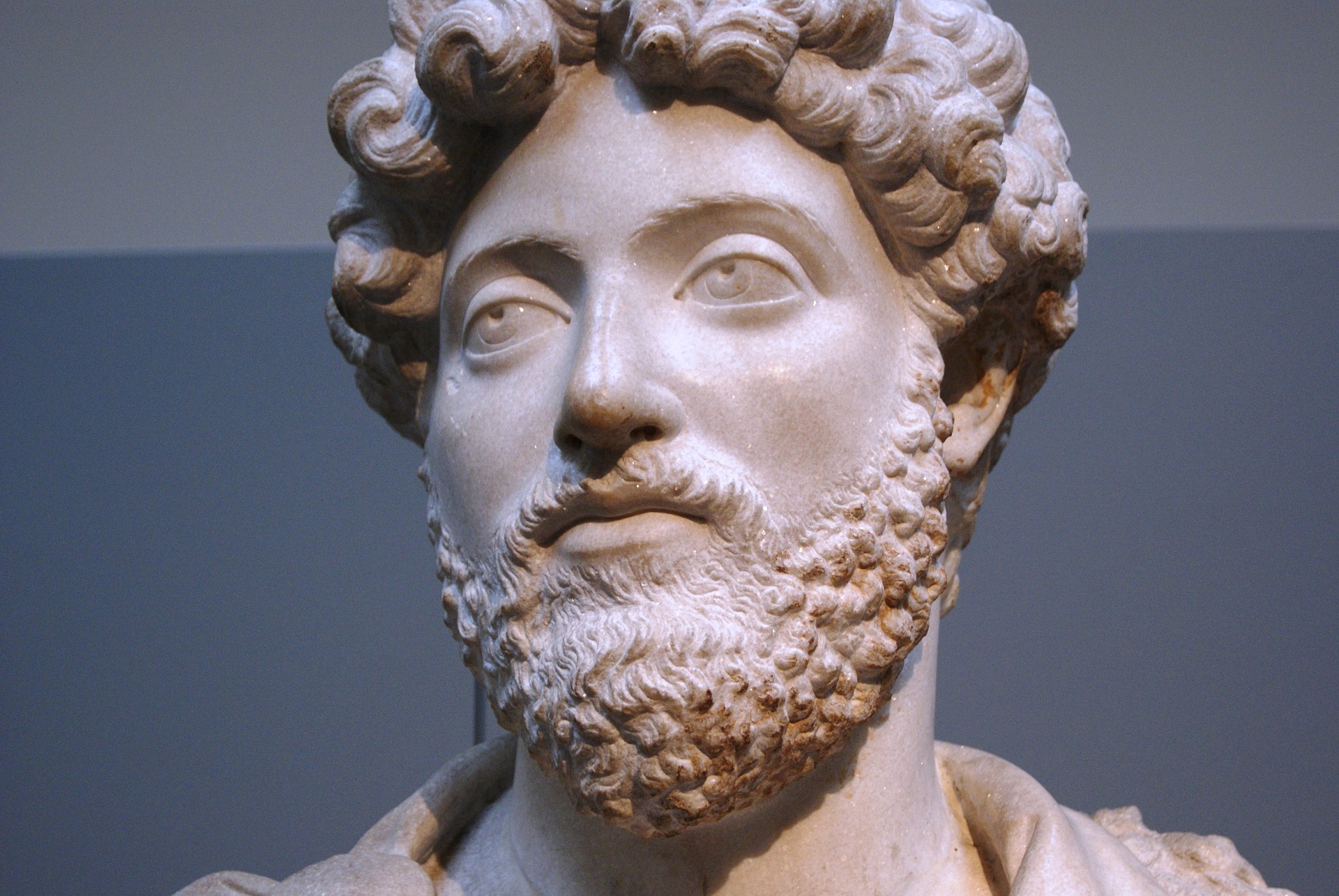
Before reading the Meditations of Marcus Aurelius, I would highly recommend that you get yourself a modern translation of it. It can be hard to read an older version as Old English and the archaic use of language doesn’t come naturally to modern people which in turn can make you stumble through the text and lose the subtle nuances of some of the passages.
I’ve recently completed reading Meditations (A New Translations, with an introduction by Gregory Hays) which I found to be a very easy, light and intelligent read that allows the personality and gentle nobility of Marcus Aurelius to shine through.
It really reveals to you how deep and thoughtful this man was, being a lifelong student of Stoicism who is sometimes referred to as ‘the last good emperor of Rome,’ a man that according to historians was fond of wrestling and boxing in his youth, but bored by the senseless slaughter of the gladiatorial contests and other shenanigans popularly known as ‘the games.’
Marcus comes across as a scholarly man who I’m sure would have preferred to live the philosophical life in peace and quiet far away from the cut and thrust of Roman politics and life at court; not to mention the many conflicts in the North that required him to spend time away from his home near the front lines of battle, defending the empire (and by extension those that he loved) from barbarian’s who were constantly picking at the borders of his many realms, testing the Roman state for any signs of weakness.
“Here is a rule to remember in future, when anything tempts you to feel bitter: not “This is misfortune,” but “To bear this worthily is good fortune.”
― Marcus Aurelius, Meditations
I’d like to take this opportunity to emphasise that Marcus’s work was never meant to be published, his meditations were merely notes and advice to himself that came about through the use of deep thought and rationality in the face of adversity and problems. They serve to give you a good insight into the practices of Stoic Meditation.
When you think of meditation you might be tempted to think of a breathing practice in which you still the mind by removing from it all thoughts as in Buddhist Meditation for example. Whilst this is undoubtedly an excellent practice Stoic Meditation is in fact the opposite process that requires the practitioner to focus (preferably in a place where he won’t be disturbed) on the issue at hand, using his or her ‘god given,’ rational faculty to work out the best way to solve a problem or develop an idea or disposition that might be helpful in his daily life.
Writing your thoughts down on paper (or today on a computer screen) is a brilliant way to focus on a particular subject or issue and empty your subconscious of its preconceived ideas and attitudes that might be harmful to you whilst bringing to your conscious mind all that is good, that will surely benefit you in day to day existence.
Marcus also mentions a number of other stoic exercises such as the view from above, in which you mentally zoom out beyond human affairs to see the land and the people below as from a great mountaintop or the point of view of an eagle or the ‘gods.’ From such a vantage point everything looks petty, it’s a great way to distance yourself from your troubles and put them in their proper context when compared to the rest of the world or the cosmos. Whilst they might seem important or overwhelming to you they are not actually that big a deal when it comes to the greater universe which will go on regardless of your actions.
It’s the practical wisdom of things like this that stand out for me along with his gratitude for his life, the good influences from certain people within that life as his utter determination to do his duty by his fellow citizens.
What is repeatedly apparent is that Marcus saw himself as one tiny part of a much greater whole, it was rational to serve the whole or the complete being as everyone benefited when society worked well. This principle he extended not just to Rome and it’s empire but to the whole world in a way that is reminiscent of Hierocles and his ‘circles of concern.’
Marcus is also notable with his acceptance of his fate seeing it as no different to the fate of others being ordained by providence/the gods at the formation of the universe and as such must be for the good of the whole.
“Accept the things to which fate binds you, and love the people with whom fate brings you together, but do so with all your heart.”
― Marcus Aurelius, Meditations
The gods are not evil, all that they will must be to the benefit of all mankind, or else they would not allow it, so henceforth all that unfolds in the world must be for the ultimate good of all beings everywhere.
The meditations also show that from time to time he doubts that the gods exist and through the use of rational faculty tries to convince himself that they do and that all is well, or else what is the point of existing in a universe without either gods or providence (determinism).
From reading Marcus Aurelius you can glean that:
- It’s wise to give thanks for all of the good people and influences in your life
- Very little is needed to make a happy life.
- Life is transient and that nothing lasts forever.
- You should give no importance to the judgements that others hold of you.
- Nothing is bad in nature.
- We’re all subject to natural law.
- We should all do our part and behave in a way that is natural just as the birds and the wild beasts do.
- All creatures play a part in reality and it’s for the good of all.
- Material possessions don’t count for much.
- You should follow the logos in all things and use your rational faculties!
- Death is natural, necessary and by extension good, so be ready!
- If anything waits for us after death it must also be good or else the gods would not allow it or at the very least give you some way of avoiding it!
- A good life is one of service to the community.
- Everlasting fame is at best worthless and impossible to maintain.
- You should do all things to the best of your ability.
- You are a small part of a much greater whole.
- You should accept your fate and work with it, as it must be good!
- Everything is in a state of change and decay, that all things are temporary.
- Be sympathetic to those who exhibit bad behaviour.
His writings, his mere notes to himself were compiled into a complete work after his death. Marcus was such a great man, a truly great emperor that those that loved him simply couldn’t allow his work to be lost to time, so they preserved it in the best way that they could and now, nearly two thousand years later we can still enjoy his simple wisdom, his legacy still shines and will continue to do so for quite a while yet.
“If someone is able to show me that what I think or do is not right, I will happily change, for I seek the truth, by which no one was ever truly harmed. It is the person who continues in his self-deception and ignorance who is harmed.”
― Marcus Aurelius, Meditations
Personally, I get a sense that Marcus was conservative, modest, compassionate, kind, warm-hearted and tolerant, slow to anger naturally engendering respect for him and his high office in those around him as a result of holding and practising these stoic virtues.
“Think of yourself as dead. You have lived your life. Now, take what’s left and live it properly. What doesn’t transmit light creates its own darkness.”
― Marcus Aurelius, Meditations
He was undoubtedly a man of his time, probably one of the best examples of a ‘man of his time,’ and as a result, would probably be considered less than perfect in today’s society. Nevertheless, his writings do make him seem more fit for high office than some of today’s politicians, none of which seem to have any understanding of the need to use the logos and to practice virtue.
“If it is not right do not do it; if it is not true do not say it.”
― Marcus Aurelius, Meditations
Marcus was truly noble, as noble as he could be for the times in lived in, noble in word, noble in thought and noble in deed. That’s why this protector of philosophy will always be my emperor.
From now on whenever I think of Rome and I think of ‘the emperor,’ I will always think of Marcus and his ongoing legacy that has shaped the world into its modern form. I swear allegiance to Marcus Aurelius and to the stoic principles he espouses.
In all, The Meditations of Marcus Aurelius is a highly recommended read for all students of stoicism, it’s easy, simple and direct, surprisingly relatable and altogether rational and most importantly, human!
“Very little is needed to make a happy life; it is all within yourself in your way of thinking.”
― Marcus Aurelius, Meditations

